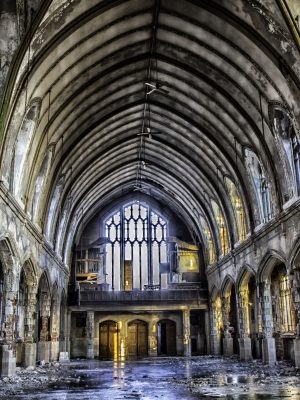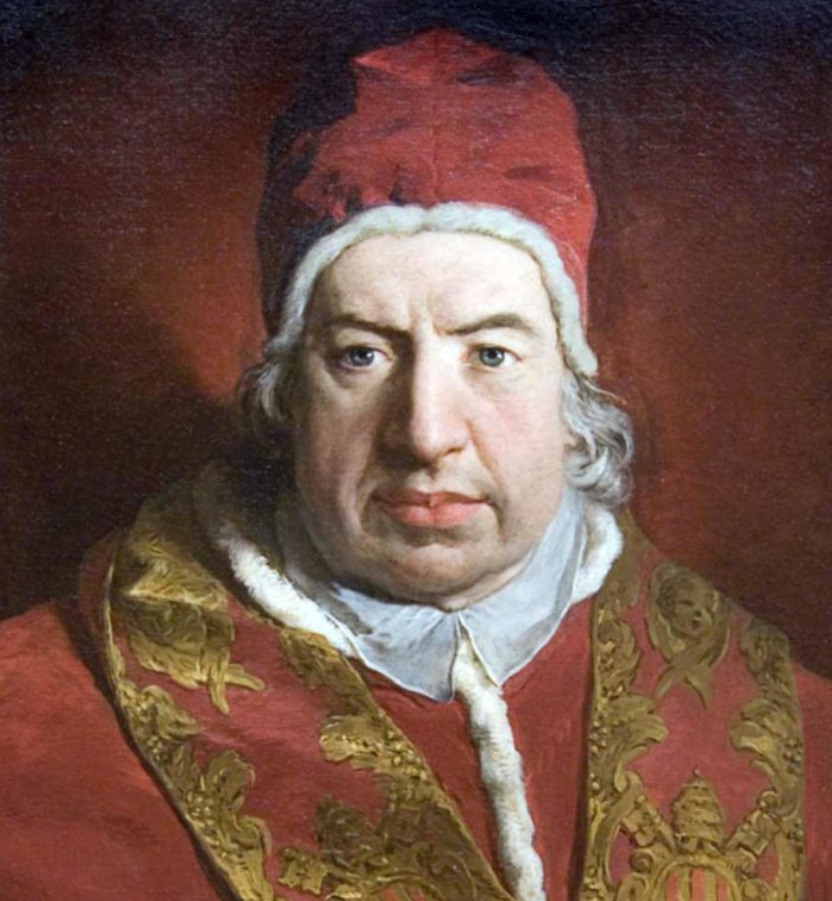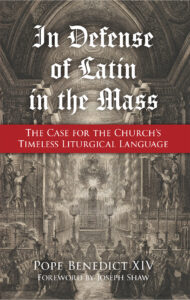It is often said that the Latin of the early Church was simply the language of the common people. This statement is inaccurate. The Vulgate Bible and liturgical Latin established a specialized sacred register with a distinct vocabulary replete with archaisms, new coinages, and idioms carried over from Hebrew and Greek. Furthermore, as Pope Benedict XIV points out, the Church made no attempt to translate the liturgy into the minority languages of the Western Roman Empire. He cites Saint Augustine on the widespread use in North Africa of Punic, once spoken by the Carthaginians. Indeed, there is evidence of persisting minority languages from many parts of the Western Empire, just as there is of non-Greek speaking communities in the East. Later, Saint Patrick introduced the Latin Mass to Ireland while Saint Boniface brought it to Germany. Latin eventually became incomprehensible to people even within the old borders of the Roman Empire, and the Council of Tours responded in the ninth century (Pope Benedict reminds us) by commanding priests to preach in the vernacular.
Practical considerations, such as the multiplicity of vernacular languages, were not the only ones at the root of the reluctance of the Latin Church to translate the liturgy, even (as Pope Benedict emphasizes) in the context of major new mission territories such as those of the Slavs and the Chinese, despite acknowledging that in principle vernacular liturgies are possible. The deeper reason is only hinted at by Pope Benedict when, considering the possibility that parish priests be tasked with translating the Missal into local dialects, he remarks that “such a procedure would be totally absurd and wholly unworthy of the dignity of the Mass.”
This debate over whether to use the vernacular or Latin in the liturgy is not trivial. It is of the deepest importance. It is not simply related to the Mass but has a connection intimately with our devotion to and worship of the Blessed Sacrament, the source and summit of our faith. It is interesting to see how the debate on the use of Latin has evolved over time, especially among the Petrine Office. It is an irony that the same man who most clearly wrote this point into the papal magisterium was also personally responsible for the almost complete disappearance of Latin as a liturgical language: Pope Paul VI. He remarked, in a general audience address, “The introduction of the vernacular will certainly be a great sacrifice for those who know the beauty, the power and the expressive sacrality of Latin. We are parting with the speech of the Christian centuries; we are becoming like profane intruders in the literary preserve of sacred utterance.” It is for us, half a century later, to deliver faithfully to future generations a liturgical tradition which gives the Church’s inexpressibly sacred rites a language fitting to them, a language that, by its “concise, varied and harmonious style, full of majesty and dignity,” vividly conveys to us the liturgy’s beauty and grandeur.
This article is taken from a chapter in In Defense of Latin in the Mass by Pope Benedict XIV, which is available from TAN Books.








1 Comments
[…] World Youth Day Urgently Needs These Three Reforms – Cathwalk.de via Catholic Conclave The Debate of Language in the Liturgy – Pope Benedict XIV via Tan·Direction Blog Wave of Suicides by Brazilian Priests – […]